Table of Contents
Introduction to Seasoning Vegetables
Seasoning vegetables effectively requires understanding your cooking method and vegetable type. For roasting, toss vegetables with oil and spices before baking to maximize flavor absorption. For steamed greens, add fresh herbs and a splash of acid like lemon juice after cooking. The right seasoning transforms bland veggies into delicious, healthy meals.
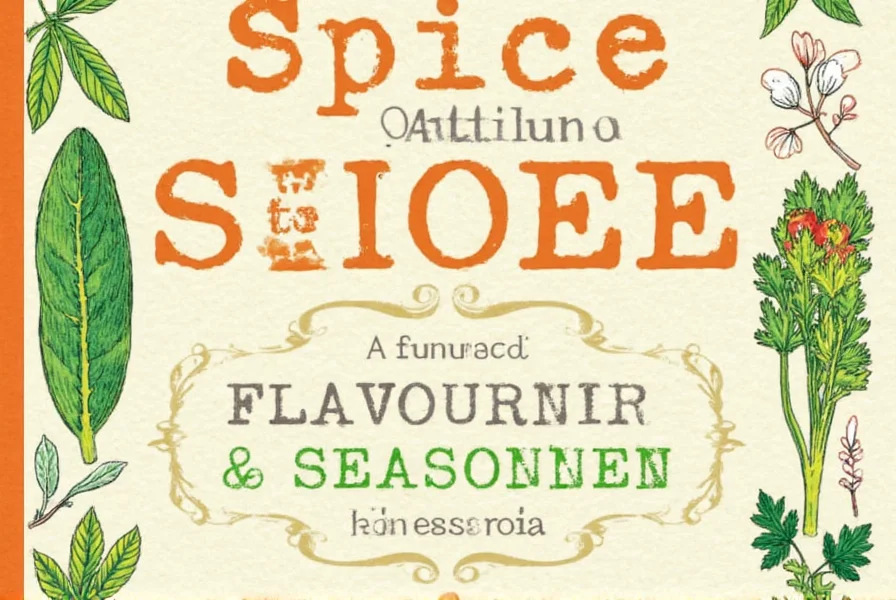
Why Season Vegetables?
Vegetables are naturally rich in nutrients but often lack bold flavors that make meals exciting. Proper seasoning enhances natural sweetness, balances textures, and encourages healthier eating habits. It also helps mask bitterness in certain vegetables while highlighting their inherent qualities.
Here are key benefits of seasoning vegetables:
- Boosts natural flavors without added calories or unhealthy ingredients
- Creates complex taste profiles that make vegetables more appealing
- Helps balance textures in mixed vegetable dishes
- Encourages consistent vegetable consumption through enjoyable flavors
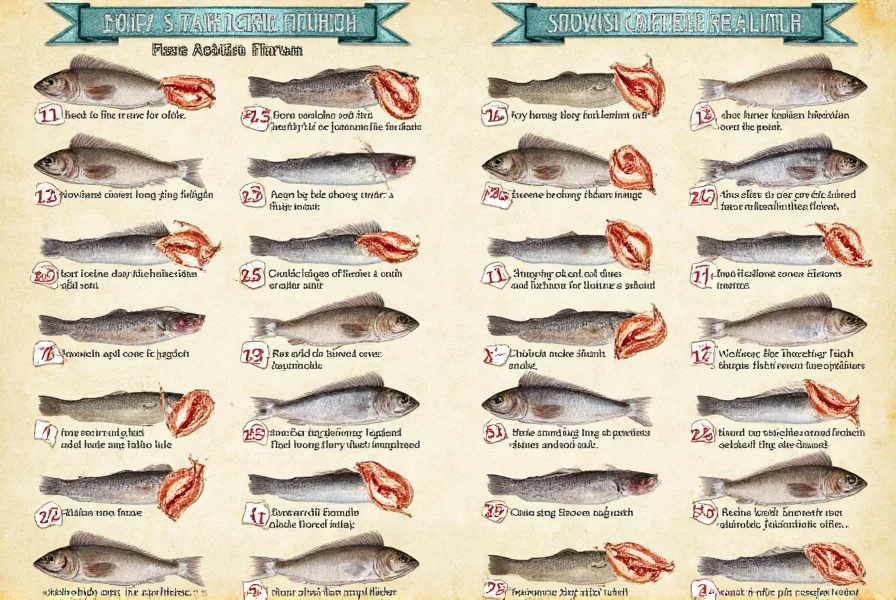
Practical Tips for Seasoning Vegetables
Master these techniques based on cooking method for optimal results:
Roasting
- Toss vegetables with oil and spices before roasting to allow flavors to penetrate
- Use robust spices like smoked paprika, cumin, or rosemary that withstand high heat
- Balance sweet vegetables (carrots, sweet potatoes) with acidic elements like balsamic vinegar
Sautéing
- Add salt and pepper during cooking to draw out moisture and enhance texture
- Finish with fresh herbs (parsley, cilantro) for bright, aromatic notes
- Use garlic powder instead of fresh garlic for consistent flavor without burning
Steaming
- Season after cooking to prevent flavor loss in water
- Drizzle with lemon juice or vinegar for acidity that complements delicate greens
- Add a pinch of sea salt and black pepper for simple, clean flavor enhancement
Grilling
- Marinate vegetables in oil-based seasonings for 15-30 minutes before grilling
- Use spice rubs with coarse salt for better adherence to charred surfaces
- Finish with fresh herbs or citrus zest for contrast to smoky flavors
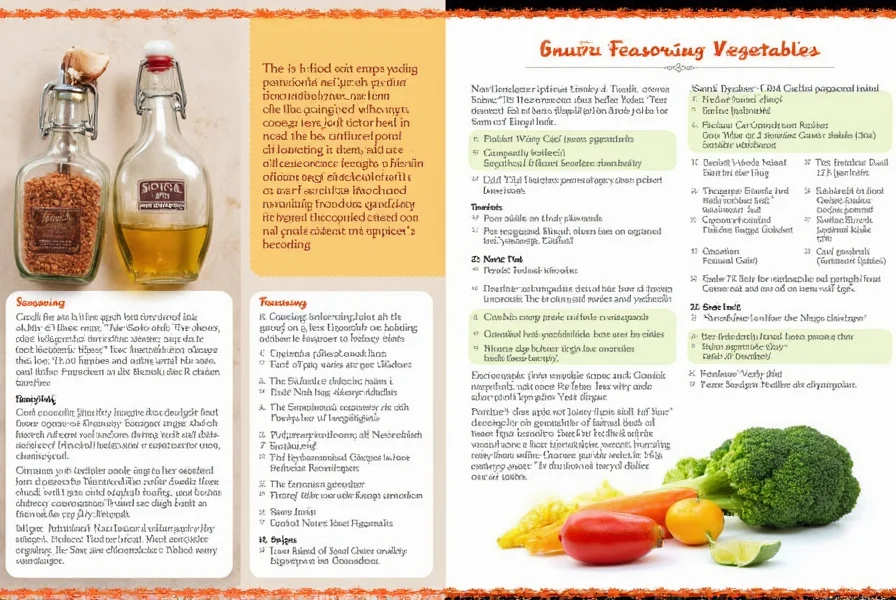
Common Spices for Vegetables
Pair spices with specific vegetables for optimal flavor harmony:
| Spice | Best With | Flavor Profile |
|---|---|---|
| Cumin | Roasted carrots, bell peppers | Earthy, warm, slightly nutty |
| Paprika | Grilled eggplant, zucchini | Smoky, sweet, slightly spicy |
| Oregano | Tomato-based dishes, roasted broccoli | Pungent, aromatic, slightly bitter |
| Garlic powder | Steamed spinach, mashed potatoes | Savory, umami-rich |
| Chili flakes | Black beans, roasted cauliflower | Spicy, fiery, vibrant |

Choosing and Storing Seasonings
Maximize flavor potential with proper selection and storage:
- Whole vs. Ground: Whole spices (cumin seeds, coriander) retain freshness longer. Grind them fresh before use for maximum potency.
- Storage Essentials: Keep in airtight glass jars away from heat, light, and moisture. Avoid storing near stovetops or dishwashers.
- Shelf Life Guide: Dried herbs last 6-12 months; whole spices last 2-3 years. Replace when color fades or aroma weakens.
- Quality Check: Fresh spices should have strong, pleasant aromas. Avoid clumpy or discolored products.
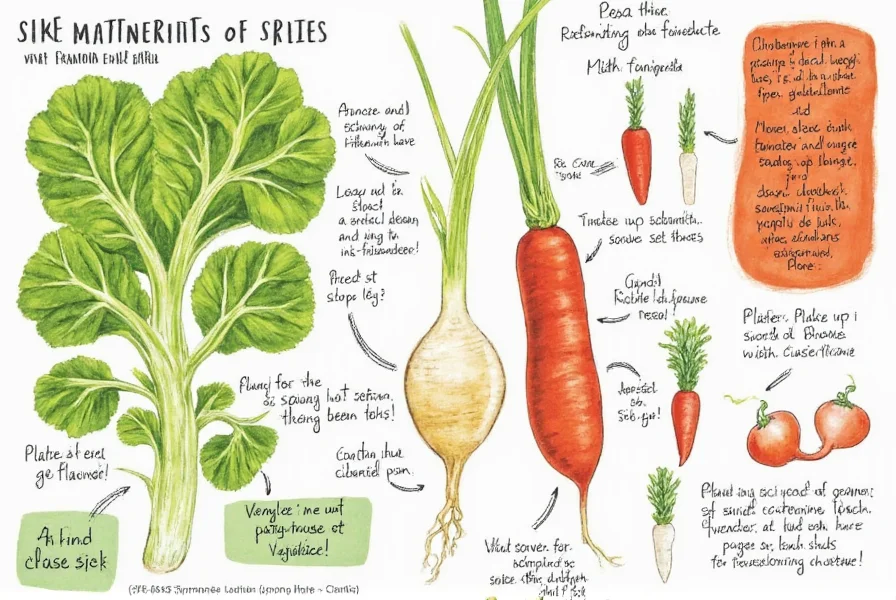
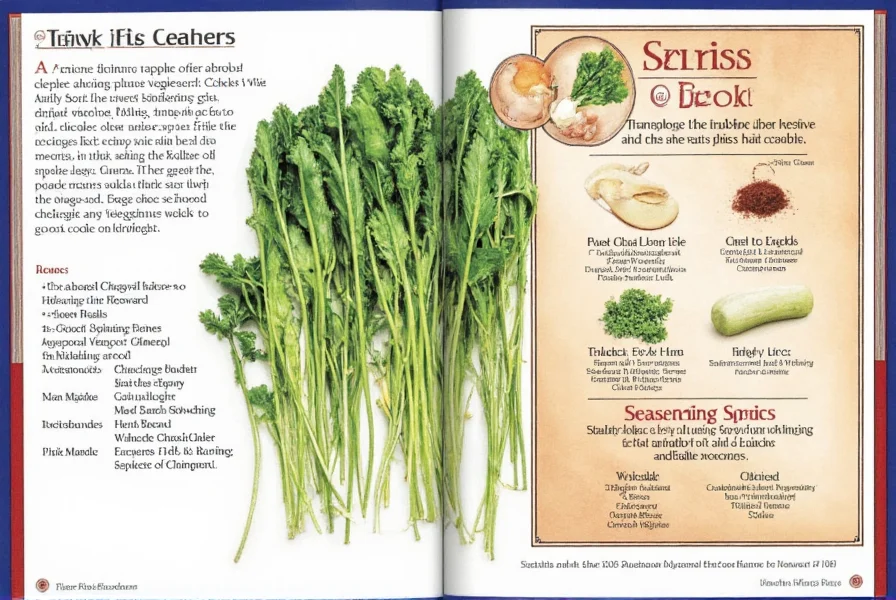
Conclusion
Seasoning vegetables isn't about complicated techniques—it's about understanding basic principles that transform simple ingredients into extraordinary dishes. Start with foundational elements like salt, pepper, and oil, then experiment with spices based on cooking method and vegetable type. Remember that fresh ingredients and proper storage make the biggest difference in flavor quality.
With practice, you'll develop an intuitive sense of which combinations work best for your taste preferences. The goal is to enhance vegetables' natural qualities, not mask them. Happy seasoning!
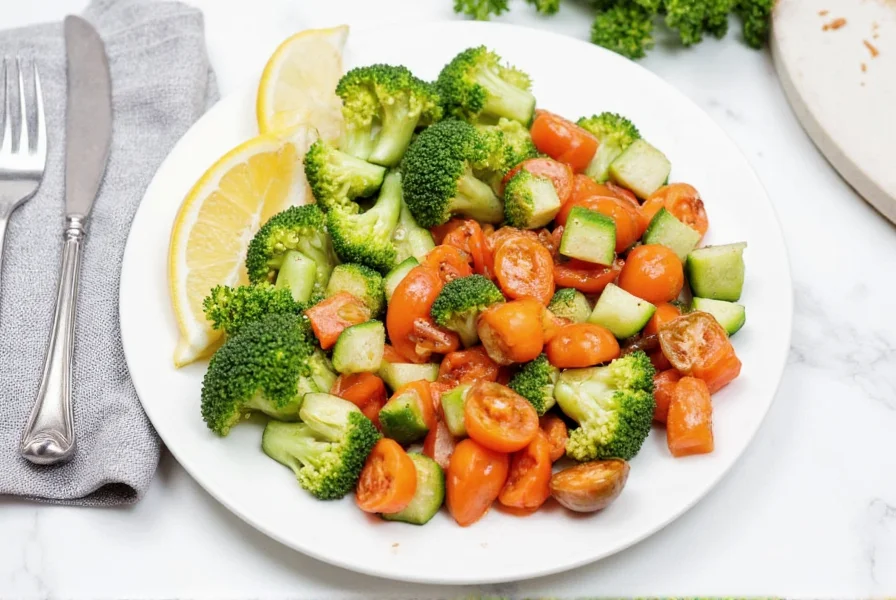
Frequently Asked Questions About Seasoning Vegetables
When should I season vegetables - before or after cooking?
The timing depends on your cooking method. For roasting or grilling, season vegetables before cooking to allow flavors to penetrate. For steaming or boiling, season after cooking to prevent spices from washing away. Sautéing works well with seasoning both before and during cooking.
How much seasoning should I use for vegetables?
Start with 1/4 teaspoon of dried herbs or spices per pound of vegetables. For salt, begin with 1/8 teaspoon per pound. Always taste as you go and adjust to your preference. Remember that flavors concentrate as vegetables cook down, so it's better to start with less and add more as needed.
What are the best seasonings for roasted vegetables?
Roasted vegetables benefit from robust flavors that withstand high heat. Try combinations like rosemary and garlic for root vegetables, smoked paprika and cumin for squash and sweet potatoes, or thyme and lemon zest for broccoli and cauliflower. A good quality olive oil, salt, and freshly cracked pepper form an excellent base for most roasted vegetables.
Can I use the same seasonings for all types of vegetables?
While some seasonings like salt, pepper, and garlic work well across many vegetables, certain spices pair better with specific types. Delicate vegetables like asparagus or green beans work well with lighter herbs like dill or tarragon, while heartier vegetables like potatoes or beets can handle bolder spices like cumin or coriander. Experiment to find your favorite combinations!
How do I store homemade seasoning blends?
Store homemade seasoning blends in airtight containers away from heat, light, and moisture. Glass jars with tight-fitting lids work well. Properly stored, most spice blends will retain their potency for 6-12 months. Label your containers with the date you made them to keep track of freshness.
Are there any seasonings I should avoid with certain vegetables?
Some strong spices can overpower delicate vegetables. Avoid using very robust spices like cloves or star anise with mild vegetables like zucchini or summer squash. Similarly, be cautious with very spicy elements like cayenne pepper with naturally sweet vegetables like carrots or beets, as the heat can mask their natural sweetness.
What's the difference between using fresh vs. dried herbs for seasoning vegetables?
Fresh herbs generally have a brighter, more delicate flavor and are best added toward the end of cooking or as a garnish. Dried herbs are more concentrated (use about 1/3 the amount of dried as you would fresh) and work well when added earlier in the cooking process to allow their flavors to infuse. Some herbs like rosemary and thyme retain their flavor well when dried, while others like basil are noticeably different in dried form.










 浙公网安备
33010002000092号
浙公网安备
33010002000092号 浙B2-20120091-4
浙B2-20120091-4